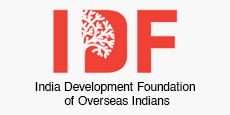Menu
- Home
- About Us
- India - Serbia Relations
- Consular Services
- Renunciation of Indian Citizenship / Surrender Certificate
- Police Clearance Certificate
- Travel Advisory
- Emergency Certificate
- Passport Services
- Other Consular Services
- Overseas Citizen of India (OCI) Card.
- e-Visa
- Visa Services
- Information for Indian students
- Registration of Indian Nationals
- Circulars for Indian Nationals
- Downloads
- GLOBAL PRAVASI RISHTA PORTAL
- Media Center
- E-Citizen/Tenders
- Tenders/Notification
- Tender for shifting of office equipment and furniture
 (PDF - 126.02 KB)
(PDF - 126.02 KB) - OFCH Global Tender Enquiry document and Tender Notice
- Tender Notice for Procurement of Hydraulic Pumps and Hydraulic Motors suitable for BEML make Hydraulic Excavator ModelBE-300LC and BE1000-1 and 70 KL Water Sprinkler Model BWS70 and for Procurement of Hydraulic Pump and Steering Pump suitable for BEML make 60 Te Rear Dump Truck, Model -BH60/BH60M through OEM/OPM/OES only
- BHEL Hyderabad - Procurement of SS Seamless U Tubes for HP Heaters
- Andaman & Nicobar Admin - Global tender for Seaplane/Helicopter/Small passenger aircraft services
- Global EOI for seaplane/helicopter/small passenger aircraft services in Andaman & Nicobar Islands
- Global e-Tender Notice for procurement of 30 x-ray based full body scanner systems
 (PDF - 865.93 KB)
(PDF - 865.93 KB) - EoI for long term Technology Collaboration Agreement (TCA) for Air Defence Gun
- Expression of Interest: Ordnance Factory, Katni
- Procurement of Fuze ISD (Filled) for 30 mm Grenade VOG-17 AGS-17
- Supply and I&C of ESE Lightning Arrestors for 129 MW SCCL Solar Photo Voltaic Power Project at Telangana Closing date: 10.06.2019)
- Supply of FCBC and Battery bank for 129 MW SPV Project, SCCL Telangana (closing date 11.06.2019)
- Supply of 1.1KV 1CX630 Sqmm AC Cables for 129 MW SCCL Solar Photo Voltaic Power Project at Telangana (Closing date: 08.06.2019)
- Supply of 1.1KV 1CX400 Sqmm DC Cables for 129 MW SCCL Solar Photo Voltaic Power Project at Telangana
- Supply, I&C and O&M for BOS and Transmission line of for 10 MW SPV Project, STPP, Pegadapally, SCCL Telangana. (Closing date: 07.06.2019)
- Supply of 1Cx300 sqmm 33 kV(E) AL XLPE Armd for 129 MW SPV Project, SCCL Telangana (4 sites). (Closing date: 06.06.2019)
- Supply of 3kVA UPS with batteries for 129MW Solar PV Plant at SCCL, Telangana
- Tender for shifting of office equipment and furniture
- Tenders/Notification
- Public Notices & Circulars
- Auction Notice of old items of Embassy on 7th February 2024
- Celebration of Republic Day of India on 26 January 2024
- Advertisement for the post of Clerk and Gardener cum concierge
- Celebration of Independence Day of India on 15 August 2023
 (PDF - 65.58 KB)
(PDF - 65.58 KB) - Public Notices & Circulars Archive

- Job Vacancy
- Applications for 66-67 Know India Program (KIP)
- Hindi Blog Competition for Foreign Nationals

- Republic Day celebration on 26 January 2023
- Applications for 63-65 Know India Program (KIP)
- Scholarship Programme for Diaspora Children" (SPDC) guidelines

- Announcement Of ICCR Scholarship Slots Under AYUSH Scholarship Scheme for the Academic Year 2022-23
- Useful Links
- Economy & Commerce
- Tourism
- Ayurveda
- Azadi ka Amrit Mahotsav.

- September 2023
- August 2023
- July 2023
- June 2023
- May 2023
- April 2023
- March 2023
- February 2023
- January 2023
- December 2022
- November 2022
- October 2022
- July to September 2022
- April 2022 To June 2022
- August 2021 To March 2022
- Azadi ka Amrit Mahotsav.
- Digital Painting and Poster Making Competition
- Gala Performance - EAM's message
- Opportunities for Medical Education in Serbia
- Contact Us







